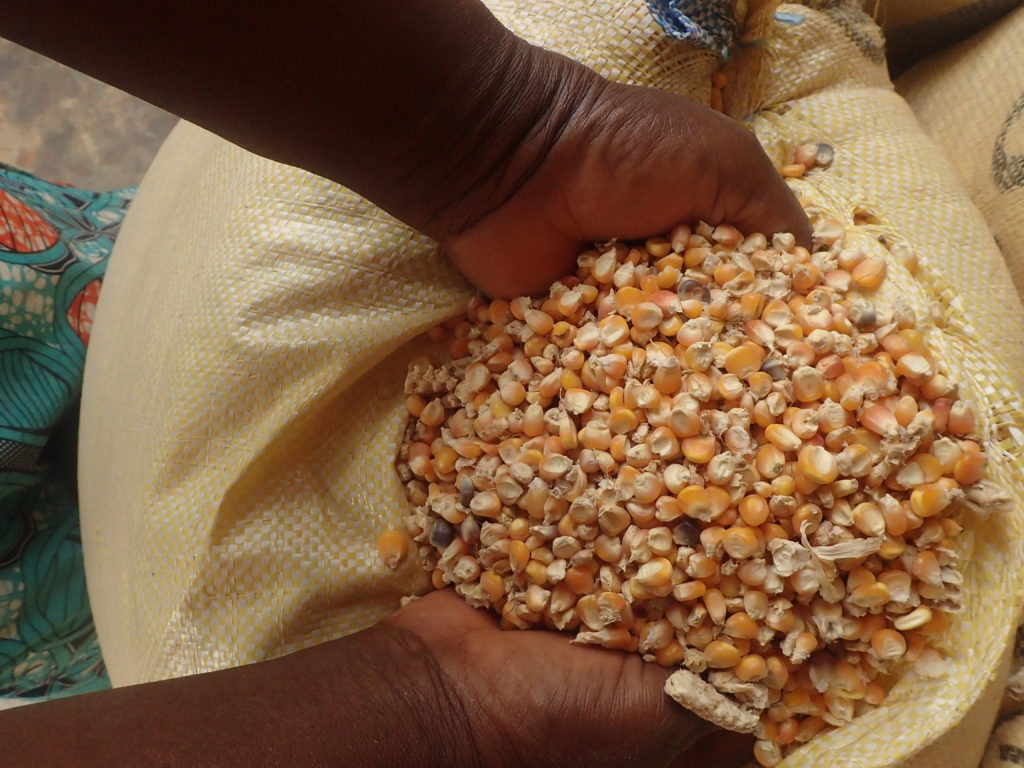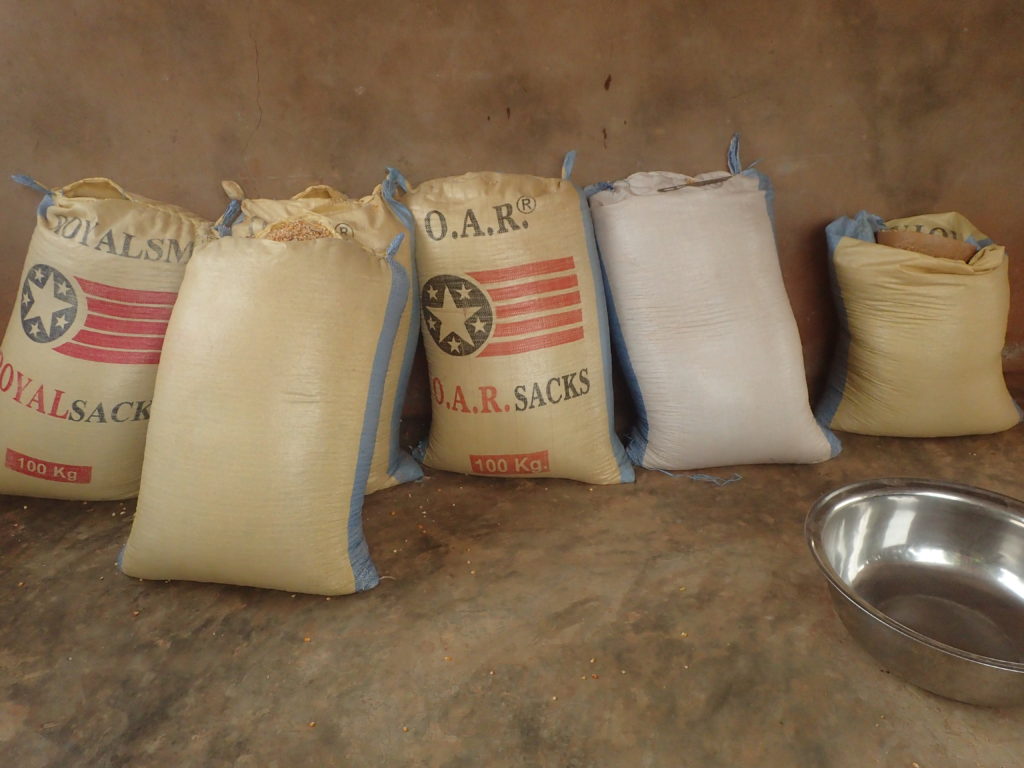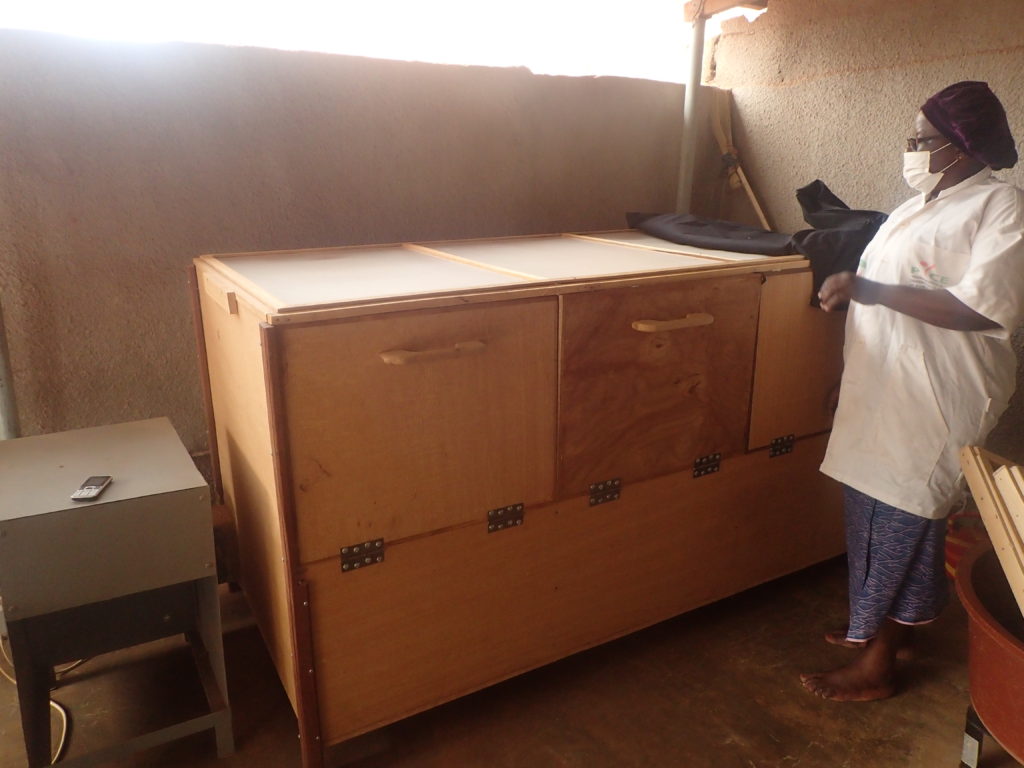
“Quality is what we need – and the quality of our new relationships helps us with the quality of our cereals”
For many years, rural women have been creating their own agri-food processing companies, that promote local agriculture by bringing to the market original foods in products that are accessible to urban populations. The aim of CDAIS is to support their development by strengthening their capacities to experiment and learn together, as well as to negotiate and make contracts with suppliers and traders. And Dakoupa in Bobo Dioulasso is one of many small family businesses supported by CDAIS through the women-led agri-food processing microenterprise innovation partnership.
The courtyard of the house is clean, calm and orderly. And as outside in the streets, the soil is a red, dry clay, that flies away at the slightest gust of wind, and settles in every corner of every room… Apart from a few bags of maize that can be seen under the porch, nothing appears out of place, and it looks like any other traditional well-kept house. But appearances are misleading. Who would believe that this courtyard is a food processing factory and the central area for a company that employs six women? Mrs Gnoula has been the manager of this processing unit for more than 10 years, and her experience and more recently with support of CDAIS, has allowed her to grow her business, network and build trust with producers and traders.
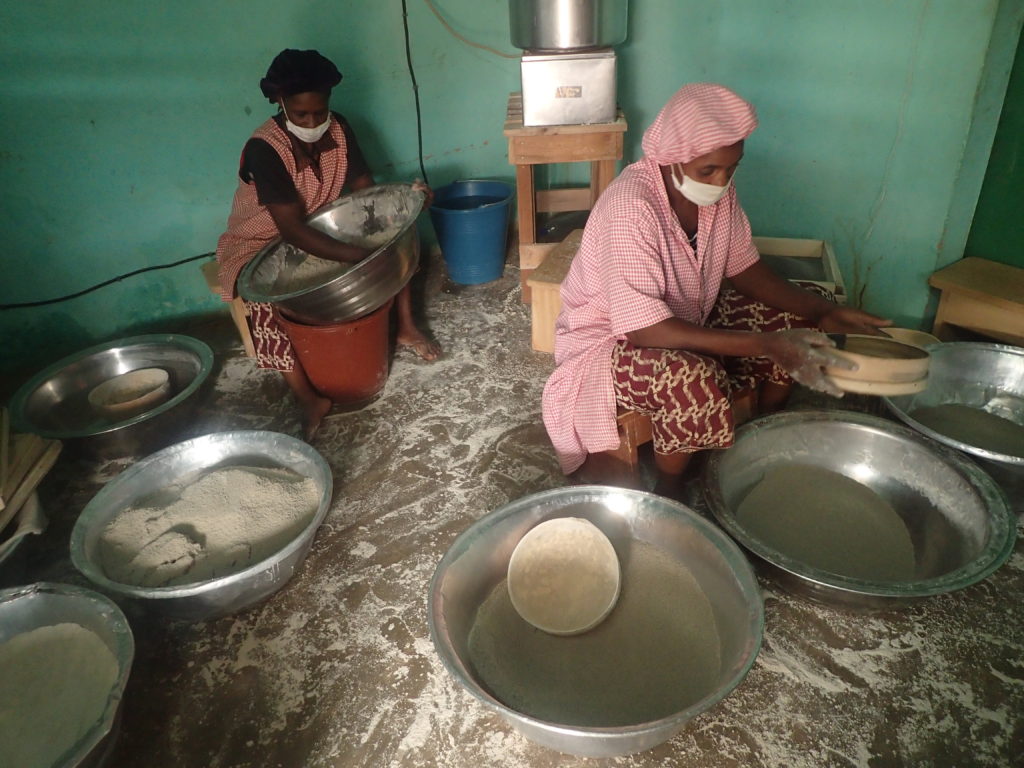
“We can now make producers understand – if you produce good quality cereals for us, we will buy them at a good price” Mrs Dambélé Ouande, agro-processor, Bobo Dioulasso
Women lead the way
The Bobo Dioulasso region in the south west of the country has fertile soils and relatively high rainfall. It is a large cereal producting area, but they are few outlets. The agro-food processing sector supported by the CDAIS is therefore fundamental for the support and development of the various actors: producers, processors, intermediaries, resellers, etc.
The CDAIS project supports Mrs Gnoula in her role as an agri-food processor to achieve success in her business. One of the main difficulties for women entrepreneurs is building trusting relationships with producers. So CDAIS facilitators assist by organizing arrangements whereby women entrepreneurs can work regularly with them. For example, Mrs Gnoula explains that “with the support of CDAIS we had a workshop with grain producers during which we were able to discuss our needs in terms of variety and quality.” Another participant added that “producers were also able to explain their constraints, and they could also talk to each other about production techniques, because many were from different regions.”
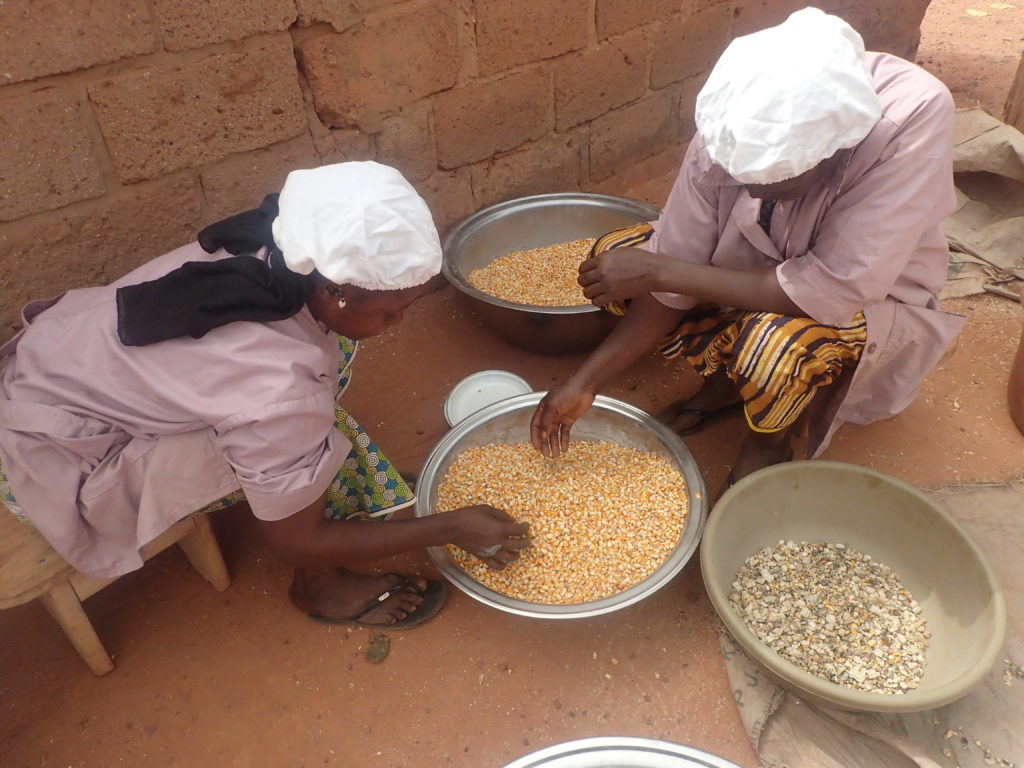
A second pillar of CDAIS support for processors is to help the drawing up of business contracts. Mrs Dambélé Ouandé manages the Wendmanegda processing unit, a few streets away from Dakoupa. Since she first became involved with CDAIS, she feels more confident in negotiating with producers, because she now knows what she wants and how to express it better. “The quality of the cereals we process is fundamental for us – to make good millet couscous, we need good cereals!” she explains. “So the contract should not necessary fix the price in advance, but it should assure the quality and quantity of cereals that we expect.”
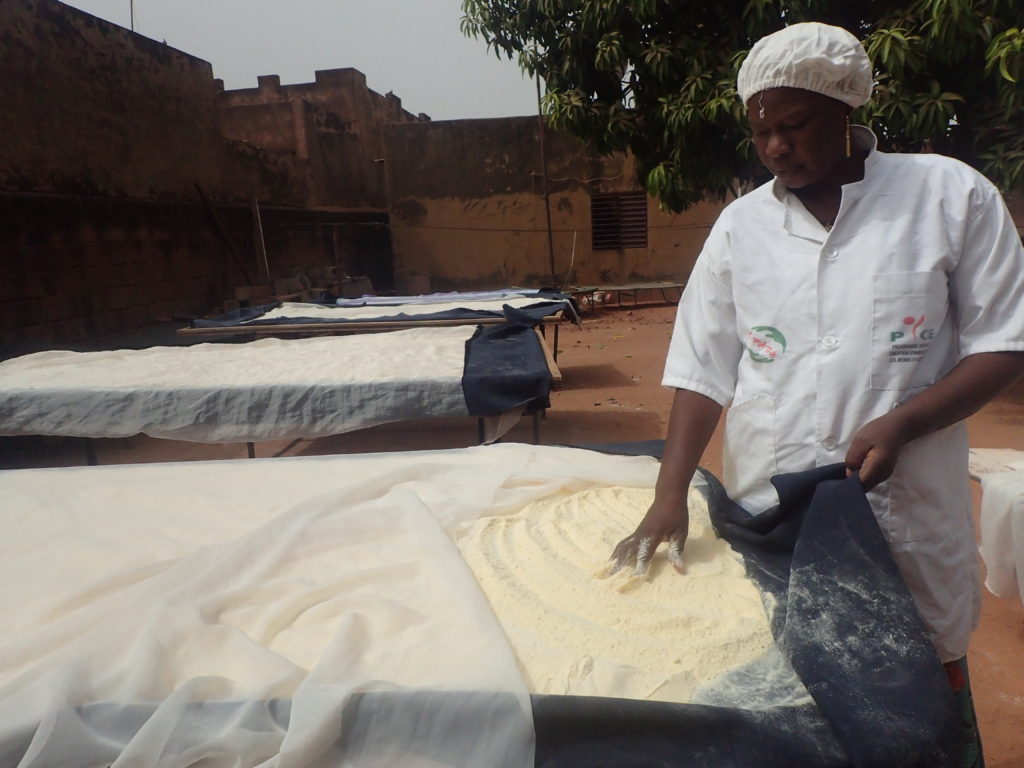
The constraints of women entrepreneurs
Mrs Gnoula and Mrs Dambélé face similar difficulties, with suppliers on one side, and their employees on the other. Often, they find stones and plant stems or cobs mixed with the cereals, as farmers don’t put any emphasis on producing a pure high-quality product, or dishonest farmers mix them to make the bag heavier. In these cases, employees must spend many hours sorting by hand, and which is time-consuming, tiring and uncomfortable work. Mrs Dambélé adds, “and it is difficult to keep women in this job for a long time because I cannot afford to pay them more for the extra work they do, and yet, this is essential work for the company.”
“A good company manager must build trusting relationships with producers, but at the same time, not let them walk over you.” Mrs Gnoula, Bobo Dioulasso, Burkina Faso
Creating a space to share views – the CDAIS approach
The support team conducts training and exchange activities between grain producers and women entrepreneurs. Never done before, these innovations have allowed the various actors in the sector to work together, enabled the exchange of contacts for future collaboration, and helped to increase the efficiency of agricultural value chains. An example of this CDAIS-supported exchange was a workshop in Bobo Dioulasso on 7 December 2017 that brought 15 producers together with five women processors, members of the Réseau de Transformateurs de Céréales du Faso (RTCF). Facilitated by Dr Traoré from a national researcher institute (INERA) and Raymond Kiogo, national innovation facilitator for the family microbusiness partnership, the day focused on sharing information for better collaboration. Dr Traoré also introduced different high-yielding and high-quality cereal varieties, some unknown to the producers. The women had the opportunity of being able to explain to the producers, the challenges they face in having to work with poor quality cereals, and highlighting their needs for quality cereals, corresponding to the transformation processes in which they are involved. And as Dr Traoré explained, “Such exchanges are really important. We have connected producers and distributors before, but have not really linked producers and processors. And the results are amazing.”

Entrepreneurial dynamics supported by research
Mrs Gnoula has now integrated herself into various projects in Burkina Faso, and thanks to one of these networks, she acquired a grain drier developed by CIRAD and IRSAT. It corresponds exactly to the needs of her business, and allows her to dry flour in three hours, such as millet and fonio, and the variety of foods that can be dried is wide. “The advantage of the drier is that drying is faster, quality is better, and above all I can work in any season” says Mrs Gnoula, “and so I don’t need drying tables any more, which cannot be used when it is raining or windy.”
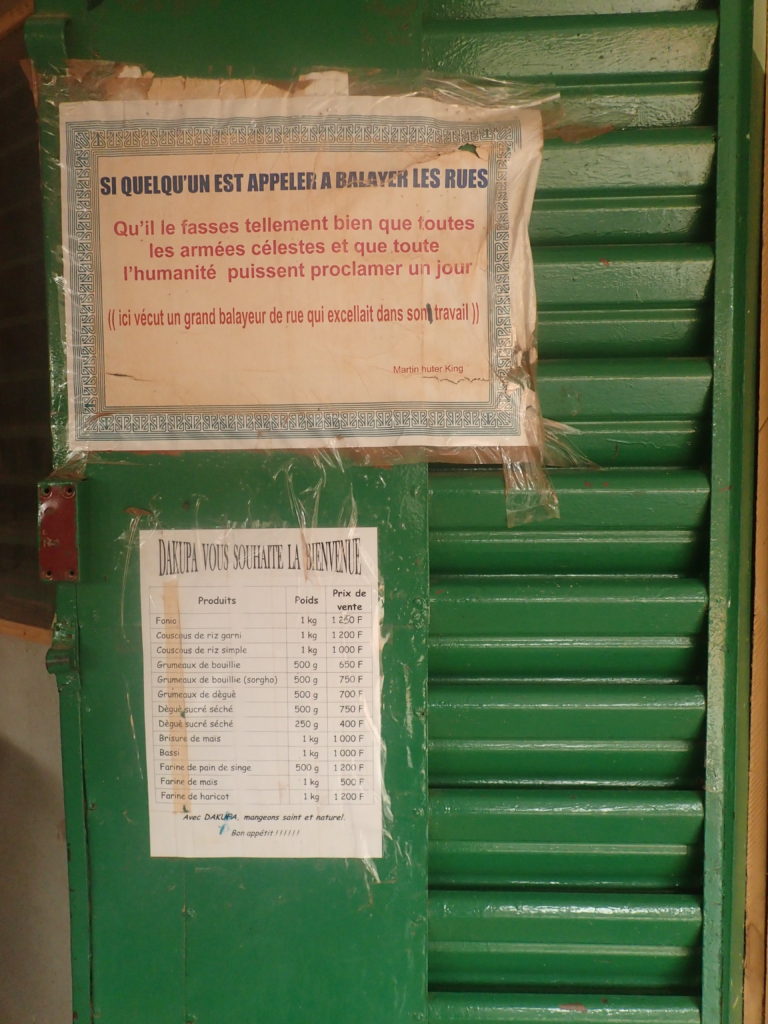
Complementing CDAIS, applied research projects are particularly interesting for Mrs Gnoula when they aim to improve the sector in ways appropriate to the reality of entrepreneurs, and offer concrete answers to obstacles she sees for the development of her business. And she is very happy with support from CDAIS to be able to draw up grain purchase contracts, and also a lease contract for land they have rented for two years. Mrs Gnoula had never before signed a lease agreement, and this has helped her to guarantee the stability of her business. The CDAIS support team made her aware of the importance of such a contract to reduce the vulnerability of the business and accompanied her in what proved to be a difficult but essential negotiation process.
Walking forwards…
Being a processor in a small family unit in Burkina Faso is a daily challenge, with insecurity in the supply of raw materials, ignorance of cereal prices, lack of a contracts governing trade, and unstable markets. CDAIS works in partnership with the entrepreneurs, but challenges remain. Though Mrs Gnoula is confident. On the door of the workshop, there is a sign based on a quote by Martin Luther King: ‘If someone is called to be a streetsweeper, they should sweep streets so well that all the hosts of heaven and earth will pause to say, here lived a great streetsweeper who did their job well.’ Mrs Gnoula says she is carried forward by this quote, because “even if our work seems insignificant, we must do it with dedication, because all work is important at its level.”
“It’s not always easy to implement good practices. I don’t have the space to separate everything, for example, though I know it would be better. But we are walking forwards, advancing, even if we know that everything is not perfect.” Mrs Gnoula, agro-processor, Bobo Dioulasso

